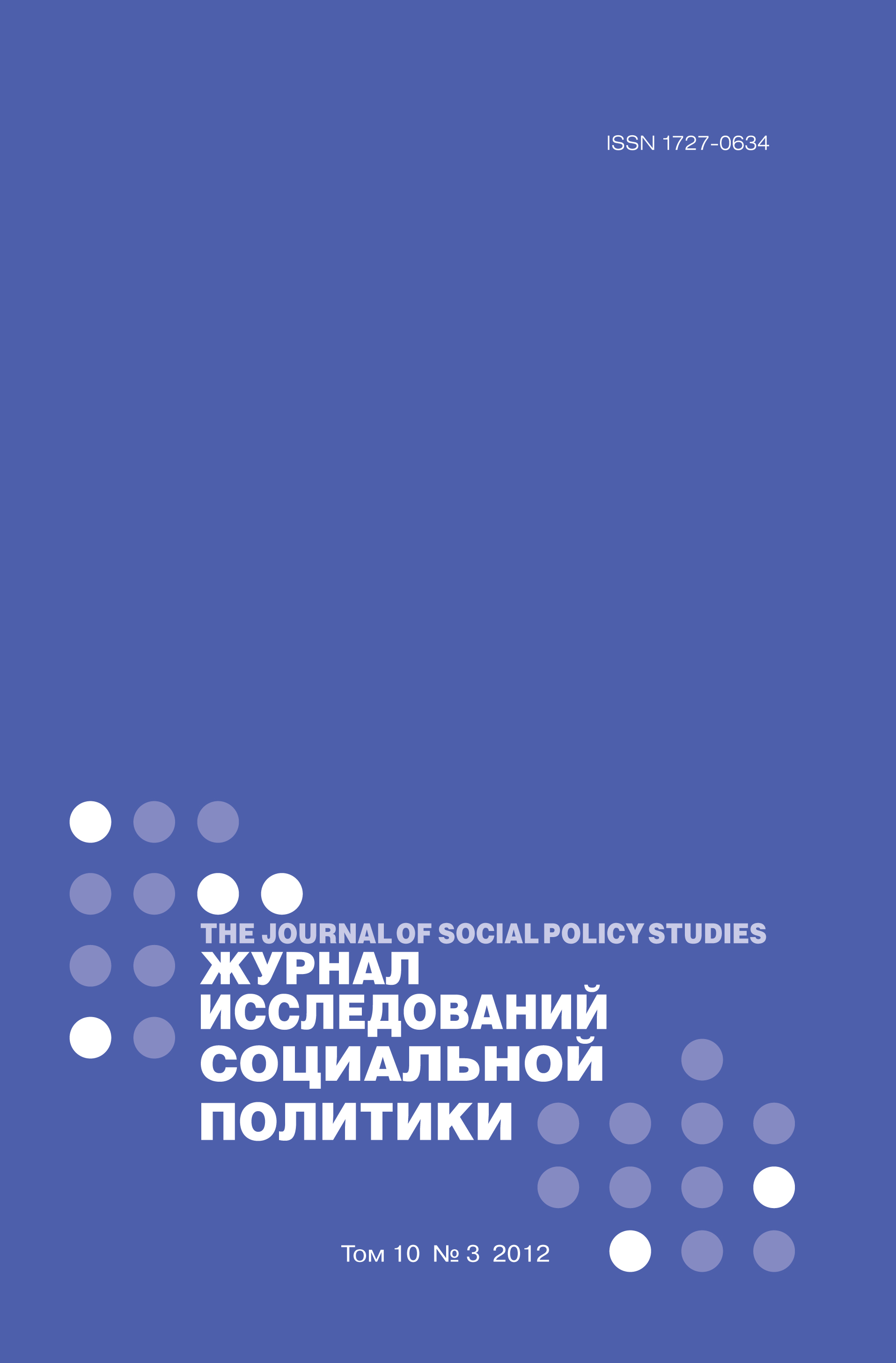Institutionalization Policies and Privatization Practices of Family Life: Partnership and Marriage in Russia
Abstract
In the post-Soviet era, changes in the gender order have been linked to a rise in unregistered partnerships (or ‘common-law marriages’), in addition to more tolerant attitudes towards these unions in Russian society. However, in Russia research into such partnerships usually focuses on their proliferation, on perceptions of common law marriage in society, and on people living in unregistered unions, whilst little attention has been given to the role of social policy. This article analyses policy relating to partnerships as an instrument used to normalise and institutionalise family relations. It looks at changes in the political understanding of common law marriage in the Soviet and post-Soviet eras in the context of transformation of relations between the state, society, the family and gender. The research is based on official discourse related to the family and heterosexual partnerships via an analysis of state records and documents from 2005 to 2012. It also draws upon interviews with young people in both registered and common law marriages about their understandings of family, marriage and parenthood.
Comparing these two sources of data on the subject enables the author to examine the contradictions between the conservatism of official discourse and everyday understandings of partnership linked to the individualisation of private life. After the fairly liberal approaches to family policy in the 1990s, post-2000 Russia has seen worries about a “crisis of the traditional family” and demographic decline result in the state promotion of a “happy family” model. This has drawn on a traditionalist view of the family as a space for reproduction, on the need for marriages to be officially registered, and on a traditional gendered division of labour. The author discusses how a discursive marginalisation of cohabitation associated with this view, which positions registered marriages and fecundity as normative models, is at odds with social trends towards individualization and reflexivity in the private sphere. Despite official rhetoric and the politicisation of unregistered partnerships, a “transformation of intimacy” is argued to have continued in the post-Soviet era.















